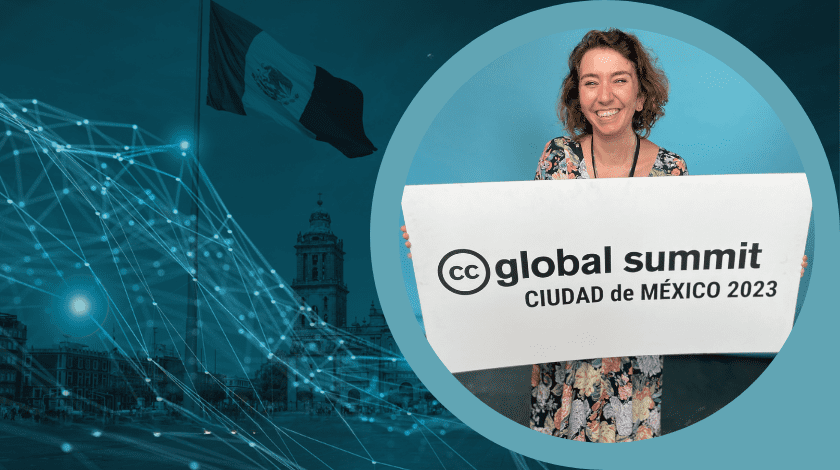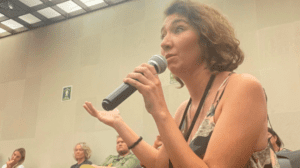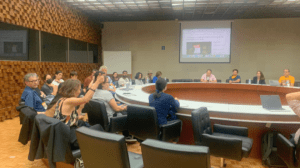News and Announcements
Can the Open Community Adapt to AI? Insights From the Creative Commons Global Summit
Published Date
- October 17, 2023

By Cailyn Nagle
As part of the global movement for a more equitable and open higher education system, the Michelson 20MM Foundation was proud to sponsor the Creative Commons Global Summit earlier this month. Participants from across the world, spanning diverse expertise, spent three days in Mexico City’s Centro Cultural Universitario Tlatelolco to share knowledge, debate ideas, and form connections as the commons face the new and evolving challenge of “Artificial Intelligence.”

Creative Commons supports and sustains an ecosystem of open education, arts, research, and culture not only through the various licenses they have developed to allow sharing, but also by providing education and advocacy to support and expand our diverse global commons. Like most ecosystems, intellectual and cultural commons are interdependent systems that rely not only on creation and sharing but also on reciprocity and reuse for their health and continuation. Just as a forest cannot survive a system of pure extraction of clear cutting without replanting, the open community has begun wrestling with the question of how to survive under the primarily extractive forces of large language models, “generative AI,” and AI-based emerging technologies.
In the most simplistic description, AI takes large sets of information and runs it through a complicated web of questions and connection-building systems to produce new-ish outputs. These outputs can take the form of written materials, images, data patterns, or more. Creators, researchers, and others are grappling with the implications that their work can be used by primarily private companies to train technologies that they do not have access to in order to create outputs they do not have control over. Currently, in the United States, courts have ruled that AI creations cannot be copyrighted, but that hasn’t stopped the questions concerning what this tool will mean for educators, students, writers, actors, researchers, and others. For those who have taken the leap to share their research and work with the world through an open license, these questions have become even more pointed.

Keynotes buttressing the conference introduced ideas that quickly became cornerstones of conversations throughout the event, including “archaeology of sound,” indigenous data sovereignty, and centering the human in AI. Participants engaged in debates, roundtable discussions, and breakouts between keynotes, exploring the potential, risks, and challenges created by the technology. The rich diversity of perspectives from around the world created moments of connection and productive disagreement.
While the future of AI and its impact—on the commons and on our shared world—will not be certain for years to come, the Creative Commons Global Summit demonstrated that when we face these questions there is an international community ready to answer to the challenge.
Michelson 20MM is a private, nonprofit foundation working toward equity for underserved and historically underrepresented communities by expanding access to educational and employment opportunities, increasing affordability of educational programs, and ensuring the necessary supports are in place for individuals to thrive. To do so, we work in the following verticals: Digital Equity, Intellectual Property, Smart Justice, Student Basic Needs, and Open Educational Resources (OER). Co-chaired and funded by Alya and Gary Michelson, Michelson 20MM is part of the Michelson Philanthropies network of foundations.
To sign up for our newsletter, click here.